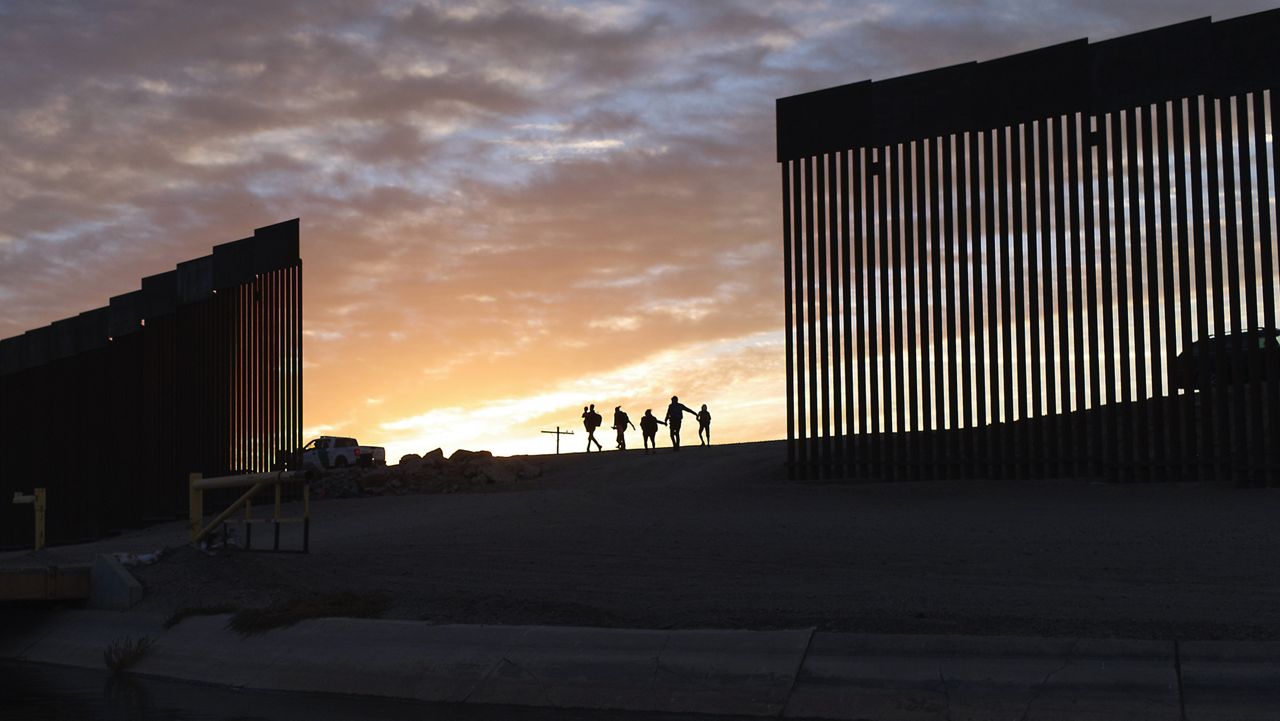TEXAS — The number of migrant encounters at the southern border has skyrocketed in recent weeks, putting a strain on border cities as well as humanitarian groups devoted to providing aid to asylum seekers as they await court hearings.
It's believed that part of the reason for the uptick in migrants seeking asylum in the U.S. is that the pandemic-era Title 42 expulsion policy is set to expire on Dec. 21. As that deadline looms, some Texas lawmakers, on both sides of the aisle, are calling on President Joe Biden to extend it.
Sen. John Cornyn, R-Texas, and Sen. Joe Manchin, D-West Virginia, along with Rep. Henry Cuellar, D-Texas, and Rep. Tony Gonzales, R-Texas, sent a letter to Biden on Tuesday calling on him to extend the policy that allows authorities to turn migrants back based on COVID-19 guidance from the U.S. Centers for Disease Control and Prevention.
An excerpt from the letter reads, “We have a crisis at our southern border. Never before in our nation’s history have we experienced this scope and scale of illegal border crossings, and we remain concerned that your administration has not provided sufficient support or resources to the men and women of the Department of Homeland Security (DHS) who are tasked with maintaining border security.”
According to DHS Secretary Alejandro Mayorkas, in May 2022, he was expecting up to 18,000 illegal border crossings a day upon the lifting of Title 42. Court documents show the heavy reliance DHS has on Title 42 to help manage migrations from Mexico and the Northern Triangle. In October 2022, most Mexicans, Guatemalans, Hondurans and Salvadorans who crossed the border were turned away under Title 42 rather than processed under Title 8.
Rep. Veronica Escobar, D-Texas, made her own pleas later on Tuesday afternoon.
“The extraordinarily high numbers of migrants arriving daily in El Paso has created an unprecedented strain on our community and requires significantly more federal resources as well as a broader, whole-of-government response,” said Escobar. “Our local governments have been strained as they are asked to perform functions outside their normal operations, NGOs are doing the best they can, and our CBP personnel have been stressed beyond anything they have ever experienced to date.”
Although she’s made her gratitude for the Biden administration known for the million of dollars in financial support El Paso has received, Escobar says more immediate resources are needed.
“In the short-term, I am asking the administration for more resources for our local governments and direct engagement in the form of federally-operated short-term emergency shelters for those migrants who have been released but need respite for 48 hours or less and bringing in federal personnel from other agencies to support its operations,” Escobar wrote.
After asking House Appropriations Chairwoman Rosa DeLauro to include the idea in the final FY23 omnibus funding package, Escobar said Mayorkas “assured her that El Paso’s funding requests are being favorably and expeditiously processed.”
While Title 42 is flawed, lawmakers claim its end could cause operations to crumble and lose control over the southern border. They believe this loss could negatively affect border communities and increase suffering and fatalities among illegal migrants come to the U.S.
“As long as Title 42 remains our only effective tool for controlling unlawful migration—along with the expectation of its imminent rescission—pressure will continue to build on the southern border. A recent article in the New York Times stated that ‘waves of Venezuelans have left South America as word has spread that the United States had no easy way to keep most of them out and would allow them to enter the country and seek asylum,’ and that ‘[n]early all have passed through the Darién Gap,’” said Cornyn, Manchin, Cuellar and Gonzales in their letter to Biden.
The CDC tried to bring a close to the Title 42 order in April 2022, but Judge Robert Summerhays blocked the attempt. However, the case was appealed to the Fifth Circuit. Judge Emmet Sullivan on Nov. 15 moved forward with its termination in a separate order.
Lawmakers couldn’t understand how they’d manage with just five weeks to prepare for an influx of migrations at the border with no order in place to help organize the chaos. And now Title 42’s deadline is just less than two weeks away.
“We are also concerned that aside from filing a notice of appeal weeks after Judge Sullivan’s decision, DHS has not outlined a viable plan to maintain operational control of the southern border. This situation is untenable, and we must work together to keep in place DHS’s authority to quickly expel migrants until an acceptable set of alternative policies and resources is put into place,” lawmakers wrote in the letter.
Escobar said the dramatic uptick in migrant encounters is burdening her community and called it “unfair.” In short, she stated, it’s perilous for the administration to use deterrence-based policies as a relief for the border crisis as it has proven to not have worked in the last three decades, and something has to be done now.
An Escobar statement reads: “We need not sacrifice our humanitarian values in order to address the overwhelming challenge we must confront. I remain committed to ensuring El Paso gets the resources we need, asking our local leaders to work collaboratively, advocating for relief for our agents, treating the vulnerable among us with the dignity we would want for ourselves, and working with my colleagues in Congress on legislative solutions.”



